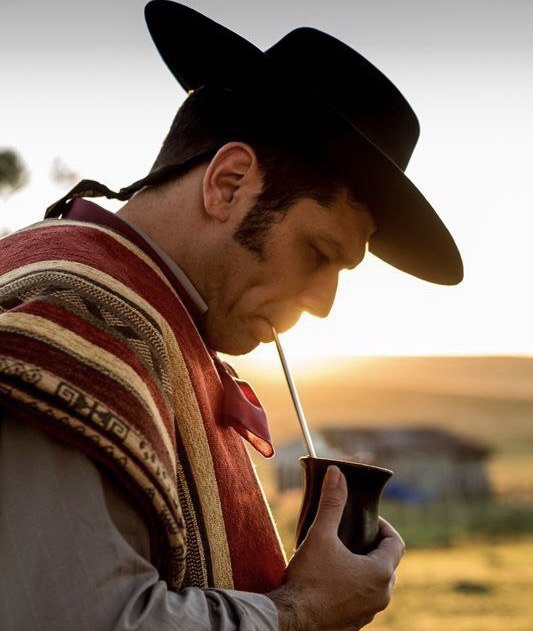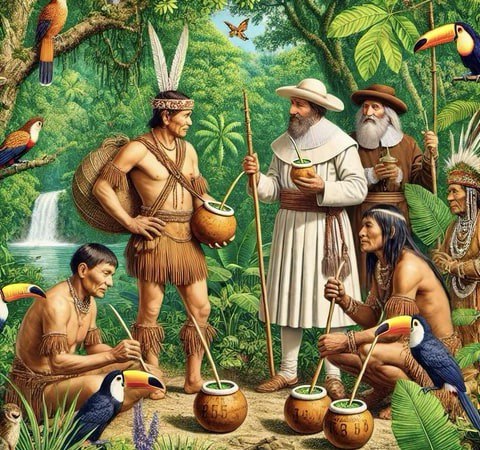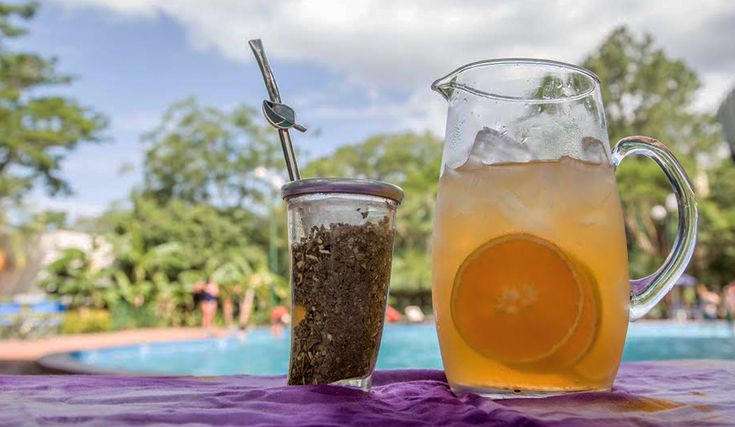Yerba mate, a caffeinated herbal tea, holds an extraordinary place in Paraguayan culture. It’s establishment as a cornerstone of national identity is deeply intertwined with the land’s history, indigenous traditions and colonial interactions.

The Roots in Indigenous Practices
The origins of yerba mate lie with the indigenous Guaraní people, who have inhabited what is now Paraguay for centuries. For the Guaraní, the plant wasn’t just a source of refreshment but a spiritual and medicinal herb. They believed yerba mate was a gift from the gods, offering physical and mental vitality. Traditionally, they consumed it communally, reflecting a sense of unity and connection.
The Guaraní harvested the leaves of the Ilex paraguariensis tree, prepared them by drying, and brewed them into a beverage. This ritual, along with its many health benefits, made yerba mate a central part of their lives long before European settlers arrived.
The Role of the Jesuits
Yerba mate began gaining prominence outside indigenous communities during the 17th century, thanks to Jesuit missionaries. The Jesuits, who established missions in the region, took note of the plant’s cultural and economic potential. They learned from the Guaraní how to cultivate yerba mate and set up plantations to produce it on a larger scale.

Jesuits introduced systematic cultivation practices, which were revolutionary at the time. Their success turned yerba mate into a profitable trade good. It became pursued after not only in Paraguay but across colonial South America, contributing significantly to the local economy. Even after the Jesuit expulsion in the late 18th century, their influence on the yerba mate industry endured.
Yerba Mate in Post-Colonial Paraguay
Following Paraguay's independence in 1811, yerba mate’s importance as a national symbol only grew. It was seen as a unifying element that connected the country’s diverse social and cultural groups. During the 19th century, the Paraguayan government encouraged the cultivation of yerba mate to stimulate economic growth, further embedding it into the nation’s fabric.

The unique Paraguayan tradition of consuming yerba mate, often called “tereré,” evolved during this period. Tereré, served cold with ice and often blended with herbs, reflects the adaptability of the beverage to the warm climate of Paraguay. It continues to be a cherished tradition, embodying hospitality, friendship, and shared experience.
Yerba Mate Today
In contemporary Paraguay, yerba mate remains an integral part of daily life. Its cultural significance has transcended time and borders, with the drink gaining international recognition. For Paraguayans, however, it is more than a trendy beverage—it is a living connection to their heritage and identity.

